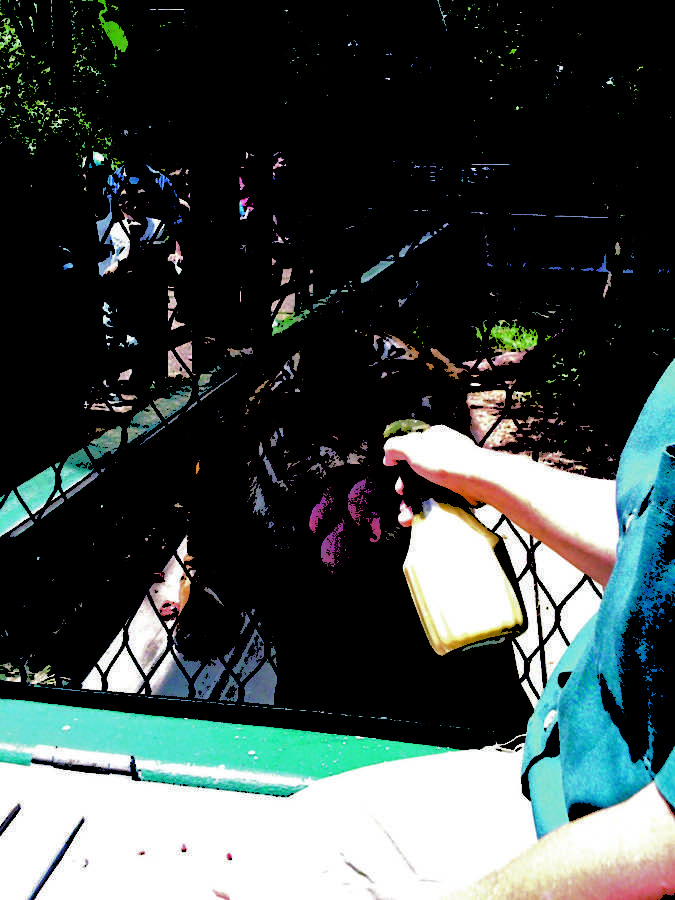Galloway: Zoos detrimental to animal well-being
courtesy of Danielle Axline works at the Houston zoo and she said she was rewarding Pandu, the Malaysian tiger at the training window during a keeper chat.
May 20, 2019
Hypothetically, in another possible world, humans might not be the dominant species, and another animal could rise up to take the crown.
This new animal might be as similar to us as we are to apes, and they want their species to appreciate the homosapien. They act on this desire, and the homosapien becomes the crown jewel when they create a zoo. This other animal wanders around and observes homosapiens in a fabricated natural habitat while we do our normal human activities.
Now, imagine living in a cage as our ape cousins do today.
Zoos are very detrimental to the mental health of wild animals. Animal behaviorists are seeing animals suffer from psychological problems when living in captivity.
Giraffes are known to be suffering from anxiety issues, leopards with are dealing with clinical depression and brown bears have dealt with the obsessive-compulsive disorder. A study on Orcas living in enclosures showed that 24% of them had significant tooth wear. Research found that 60% of Orcas would grind their teeth due to stress.
Animals in captivity are dealing with physical problems as well. An article from ProCon states, “About 70% of adult male gorillas in North America have heart disease, the leading cause of death among gorillas in captivity, although the condition is almost completely absent in the wild”.
Elephants in captivity are living less than half of the average elephant living in the wild. The Guardian wrote, “A second report, commissioned by the Department for Environment, Food and Rural Affairs, examined the welfare of 77 elephants in 13 UK zoos. It found that the animals spent 83% of their time indoors and 71 were overweight. Only 11 were able to walk normally”.
An appropriate counter argument is that animals in zoos are advocates for protecting animals in the wild. Allowing humans to see these animals in the flesh will promote awareness. It is necessary so the kids become inspired to help the environment. A utilitarian would argue that even if a certain percentage of animals are suffering in the zoo, the well-being of the entire species in the wild increases.
The Guardian states, “Romesh Ranganathan, a British comedian, stated, “It still slightly surprises me that anybody thinks that we should have zoos at all. The animals always look miserable in captivity… [T]he idea that kids only get excited about things they can see in the flesh is ridiculous. My kids are obsessed with dinosaurs that no longer exist, and Skylanders, which have never existed.”
The raising of animal awareness is a good argument to keep zoos intact. Destroying the well-being of zoo dwelling would benefit the entire species outside of the zoos.
This is a logical response, but think about psychological experiments on humans. What if we tested the results of child abuse with twins and gave one child to abusive parents and the other to kind parents. We could add so much information to the study of psychology. We would never do this because it’s unethical even if it benefits the species as a whole. So why are we doing this with animals?

















